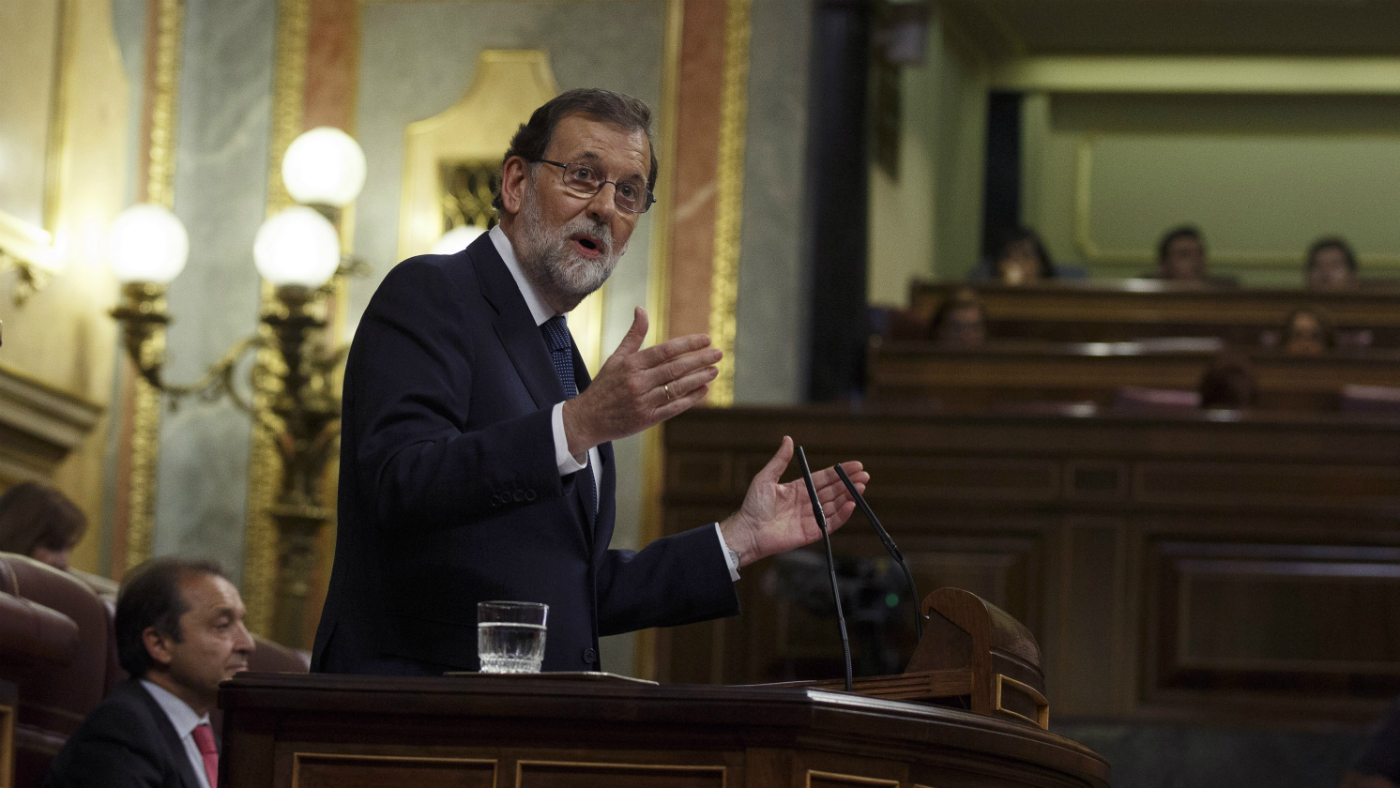Spain to suspend Catalan autonomy
Madrid expected to take control of breakaway region as deadline to abandon independence plans passes

A free daily email with the biggest news stories of the day – and the best features from TheWeek.com
You are now subscribed
Your newsletter sign-up was successful
The Spanish government is expected to revoke the autonomy of Catalonia on Saturday, after Catalan President Carles Puigdemont missed today’s deadline to officially abandon the region’s independence movement.
Spanish Prime Minister Mariano Rajoy had warned Catalonia’s leaders that if they did not retract their push for independence by 10am today (08am GMT), Madrid would invoke Article 155 of the Spanish Constitution, which allows the central government to retake control of autonomous regions of the country, including Catalonia.
In a letter this morning, Puigdemont told Rajoy that the region’s parliament would push forward with a vote on independence if Spain continued with what Puigdemont described as “repression”. He added that he was willing to negotiate with Madrid.
The Week
Escape your echo chamber. Get the facts behind the news, plus analysis from multiple perspectives.

Sign up for The Week's Free Newsletters
From our morning news briefing to a weekly Good News Newsletter, get the best of The Week delivered directly to your inbox.
From our morning news briefing to a weekly Good News Newsletter, get the best of The Week delivered directly to your inbox.
“Despite all our efforts and our desire for dialogue, the fact that the only reply we have been given is that autonomy will be suspended suggests that you do not understand the problem and do not wish to talk,” he wrote.
The Spanish government hit back with a statement criticising the Catalan authorities for “deliberately and systematically seeking institutional confrontation, despite the serious damage it’s causing to coexistence and Catalonia’s economy”.
It added: “At an emergency meeting on Saturday, the cabinet will approve measures to be put before the senate to protect the general interest of Spaniards, including the citizens of Catalonia, and to restore constitutional order in the autonomous community.”
The BBC reports that Puigdemont might be able to nominally retain his position as president of Catalonia if autonomy is suspended, but that the central government would probably seek to remove most of his duties and powers.
A free daily email with the biggest news stories of the day – and the best features from TheWeek.com
Pundits in the region believe that the activation of Article 155 may lead to further civil unrest in Catalonia, following mass protests before and since the controversial independence referendum on 1 October. The Spanish government will not recognise the vote result, and numerous EU leaders - including UK PM Theresa May - have stated that they will not recognise an independent Catalonia.
Pro-independence activists in Catalonia attended “rushed meetings” this morning to organise mass demonstrations for Saturday, reports the The Washington Post. They will also be “distributing instructions for peaceful civil disobedience” in the region, and plan to surround government buildings if Article 155 in invoked.
The site adds that there has been “widespread anxiety” in Barcelona and the surrounding region over the prospect of the national Spanish police force entering Catalonia to retake control. Government officials in Madrid have suggested that Puigdemont should suspend the declaration of independence and immediately move toward regional elections instead.
-
 Will increasing tensions with Iran boil over into war?
Will increasing tensions with Iran boil over into war?Today’s Big Question President Donald Trump has recently been threatening the country
-
 Corruption: The spy sheikh and the president
Corruption: The spy sheikh and the presidentFeature Trump is at the center of another scandal
-
 Putin’s shadow war
Putin’s shadow warFeature The Kremlin is waging a campaign of sabotage and subversion against Ukraine’s allies in the West
-
 Epstein files topple law CEO, roil UK government
Epstein files topple law CEO, roil UK governmentSpeed Read Peter Mandelson, Britain’s former ambassador to the US, is caught up in the scandal
-
 Iran and US prepare to meet after skirmishes
Iran and US prepare to meet after skirmishesSpeed Read The incident comes amid heightened tensions in the Middle East
-
 Israel retrieves final hostage’s body from Gaza
Israel retrieves final hostage’s body from GazaSpeed Read The 24-year-old police officer was killed during the initial Hamas attack
-
 China’s Xi targets top general in growing purge
China’s Xi targets top general in growing purgeSpeed Read Zhang Youxia is being investigated over ‘grave violations’ of the law
-
 Panama and Canada are negotiating over a crucial copper mine
Panama and Canada are negotiating over a crucial copper mineIn the Spotlight Panama is set to make a final decision on the mine this summer
-
 Why Greenland’s natural resources are nearly impossible to mine
Why Greenland’s natural resources are nearly impossible to mineThe Explainer The country’s natural landscape makes the task extremely difficult
-
 Iran cuts internet as protests escalate
Iran cuts internet as protests escalateSpeed Reada Government buildings across the country have been set on fire
-
 US nabs ‘shadow’ tanker claimed by Russia
US nabs ‘shadow’ tanker claimed by RussiaSpeed Read The ship was one of two vessels seized by the US military